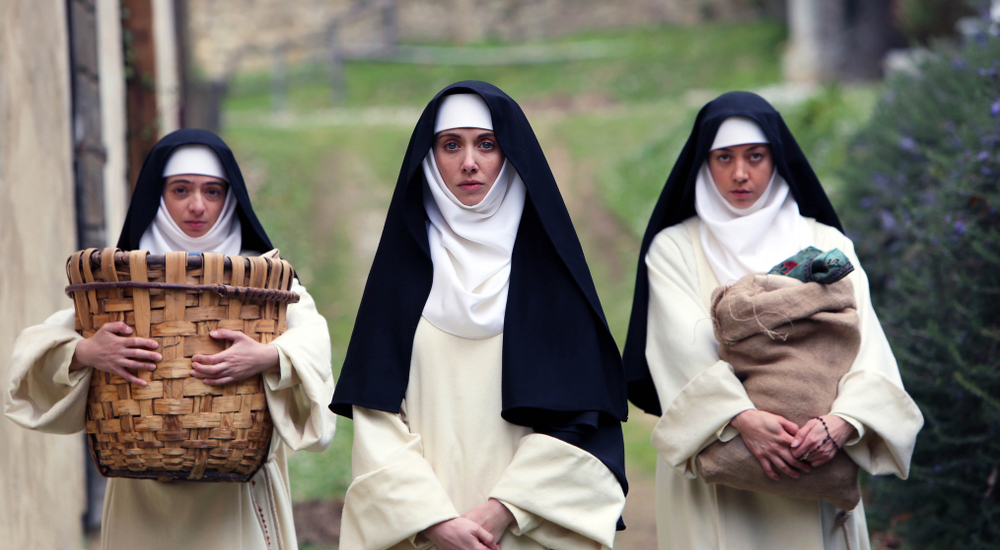“You should be thanking me father.”
Boasting at the seams with potential, Jeff Baena’s The Little Hours is unable to fully convey its central message, getting lost in the build up as it fails to deliver on anything other than the outrageous, unexpected and the politically incorrect.
Unapologetic in its tone and delivery, The Little Hours refuses to take itself seriously as we are first introduced to our trifecta of nuns as they work aimlessly to make life in the convent bearable. With Sister Fernanda’s coarse mouth, Sister Genevra’s need for rules and Sister Alessandra’s longing for marriage, the trio find life difficult - a fact that only becomes more complicated when a deaf mute servant boy shows up one day desperately searching for refuge.
Relying heavily on the absurd and unexpected, Baena works to generate shock value. Replacing substance for ridiculousness in regard to both character development and on-screen antics he fails to dig below the surface and showcase a true conflict or resolution. Characters appear out of nowhere and lies become truths with the mere movement of the tongue. And though you find yourself chuckling from time to time, there is no authentic connection between the audience and film’s players - a fairly large issue as you find yourself uninterested in their final fate.
One can look hard and attempt to correlate the events of the film to a certain degree of social commentary, but those ideas are far fetched and likely nothing more than coincidental. The heavy amount of time with Plaza’s Fernanda, along with her overly present comedic style leads one to possibly categorize the film as a vanity project for the young actress. The executive producer credit only furthers that line of thinking.
A the film works through the second act and we witness the nuns pushing the limits, spending a night together getting drunk on sacred wine and experimenting with some rather stiff girl-on-girl action, the impact of the crazy begins to falter. No longer are there actions a surprise as the entire situation becomes exhausting and the ninety minute runtime begins to wain.
As the film reaches its pivotal reveal and attempts to drive home its narrative, development plays second to the absurdity of the “twist”. Pure chaos erupts as the women find themselves helplessly attempting to court (and ultimately feel the touch of) the servant boy turned gardener, though a walk through the woods uncovers a secret that is as random as it is demented. And though Dave Franco does a decent job with the little he is given, his torso proves to be more of an asset to the film than his actual performance.
That isn’t to say that there aren’t memorable moments stuffed within the confines of an otherwise lacking film - there are. However, unlike Baena’s past works (including previous Sundance premiers Life After Beth and Joshy), they are short lived and a bit too sporadic to create any true momentum. We never get a resolution and our characters never achieve anything. Instead we gain a better understanding of their traits and issues, two things we didn’t necessarily need or want.

